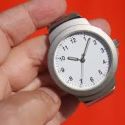 The paired phrases on the one hand… (but) on the other hand are used in English to present two opposing sides of an argument, or conflicting pieces of evidence. For example:
The paired phrases on the one hand… (but) on the other hand are used in English to present two opposing sides of an argument, or conflicting pieces of evidence. For example:
On the one hand, I’d love another cake. But on the other hand, I need to lose weight.
On the one hand, this book is very good, but on the other hand, it’s hard to read.
On the one hand, we want freedom for our children, but on the other hand, we’re increasingly frightened to let them out.
Although the equivalent phrases in Dutch (aan de ene kant…, aan de andere kant) are also often used to present a contrast, you sometimes find them used to loosely link two items or remarks:
Wij hopen op deze wijze twee doeleinden te bereiken. Aan de ene kant helpt uw gift ons de campagne voort te zetten. Aan de andere kant verzekert de site dat onze organisatie goed te vinden blijft.
In such cases, English would use a different construction, such as not only… but also; first(ly)… second(ly); or simply and. So watch out: make sure that when you use on the one hand… on the other hand in English, you are really using these phrases to express a contrast or opposition.
© 2014 Baxter Publishing, Hilversum, The Netherlands







 Busy and bezig are false friends in at least two ways. First, they behave slightly differently in terms of the structures they participate in. In Dutch, if someone is doing something, you can say that person is bezig met the activity in question:
Busy and bezig are false friends in at least two ways. First, they behave slightly differently in terms of the structures they participate in. In Dutch, if someone is doing something, you can say that person is bezig met the activity in question: Watch out! In English, unlike Dutch, almost all nouns that end in the vowels a, i, o or u form their plural by simply adding an -s. Don’t be tempted to put in an apostrophe. For example:
Watch out! In English, unlike Dutch, almost all nouns that end in the vowels a, i, o or u form their plural by simply adding an -s. Don’t be tempted to put in an apostrophe. For example: Electric is usually used before the name of a specific appliance: an electric drill, an electric iron, an electric toothbrush, an electric shaver. Your car may have electric windows, and if you drive an electric car, it is powered by an electric motor. You may play the electric guitar, but you may get an electric shock from the electric current if you play with wet hands. The electric light was a great invention, but the same can’t be said of the electric chair. An atmosphere can also be electric – very tense and exciting. Your words may have an electric effect on others, leaving them shocked and excited.
Electric is usually used before the name of a specific appliance: an electric drill, an electric iron, an electric toothbrush, an electric shaver. Your car may have electric windows, and if you drive an electric car, it is powered by an electric motor. You may play the electric guitar, but you may get an electric shock from the electric current if you play with wet hands. The electric light was a great invention, but the same can’t be said of the electric chair. An atmosphere can also be electric – very tense and exciting. Your words may have an electric effect on others, leaving them shocked and excited. The correct form is:
The correct form is: A tricky pair, especially if they sound the same to you! Advice is a noun (something you give), while advise is a verb (something you do).
A tricky pair, especially if they sound the same to you! Advice is a noun (something you give), while advise is a verb (something you do). Despite what many non-native speakers of English think, the only correct word to slot in here is to: Welcome to Amsterdam, Welcome to our company, Welcome to my home – always Welcome to… Not surprising, really, because your visitors have come from somewhere else to wherever you are now.
Despite what many non-native speakers of English think, the only correct word to slot in here is to: Welcome to Amsterdam, Welcome to our company, Welcome to my home – always Welcome to… Not surprising, really, because your visitors have come from somewhere else to wherever you are now. Don’t confuse shortly and briefly.
Don’t confuse shortly and briefly. If something is of the highest class of its type, suggesting or establishing a standard, then it’s classic: Fawlty Towers – the classic British comedy. Similarly, a classic novel is one that’s become part of the canon (or recognised list of masterpieces) of serious literature, and a book like Great Expectations is a classic – it ranks among the classics of English Literature. When it comes to cars, definitions vary, but generally speaking, especially in the US, classic cars are ‘fine or unusual motor cars’ built between about 1920 and 1960. The British reserve the term for those built after about 1945. Cars built before 1916 are veteran cars (UK) or antique cars (US), while cars built after 1916 and before about 1945 are called vintage cars (UK). There’s nothing special about a classic error, a classic example, or a classic pattern, however: it’s simply archetypical.
If something is of the highest class of its type, suggesting or establishing a standard, then it’s classic: Fawlty Towers – the classic British comedy. Similarly, a classic novel is one that’s become part of the canon (or recognised list of masterpieces) of serious literature, and a book like Great Expectations is a classic – it ranks among the classics of English Literature. When it comes to cars, definitions vary, but generally speaking, especially in the US, classic cars are ‘fine or unusual motor cars’ built between about 1920 and 1960. The British reserve the term for those built after about 1945. Cars built before 1916 are veteran cars (UK) or antique cars (US), while cars built after 1916 and before about 1945 are called vintage cars (UK). There’s nothing special about a classic error, a classic example, or a classic pattern, however: it’s simply archetypical. A common mistake among Dutch users of English is to use start with rather than start. There is a difference in English between to start something and to start with something:
A common mistake among Dutch users of English is to use start with rather than start. There is a difference in English between to start something and to start with something:


